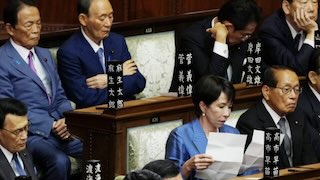Jun 22 (Al Jazeera) - Campaigning for Japan’s upper house election kicked off with Prime Minister Fumio Kishida fighting off criticism of the ultra-loose monetary policy he continues to support despite worries that it’s accelerating price increases.
Kishida defended the government’s approach during a televised debate Tuesday with eight other party leaders that marked that start of campaigning for the July 10 election. Kenta Izumi, head of the largest opposition Constitutional Democratic Party, used the term “Kishida inflation” in a bid to capitalize on recent price gains that have eroded the premier’s relatively strong support.
“The current inflation is caused by fuel price rises and the weak yen,” Izumi said in Tokyo. “It’s hard to stop fuel price rises, but the question is whether you’re going to neglect the weak yen.”
In response, Kishida, a former banker, said the current policy should be maintained, while reiterating a warning about the harm higher interest rates could cause to small businesses and homeowners. Kishida has so far supported Bank of Japan Governor Haruhiko Kuroda’s policies, including in a statement Monday.
“Monetary policy has a powerful effect on foreign exchange rates,” Kishida said at the debate. “But it also affects small, medium and micro-enterprises and mortgage interest rates. In other words, it has a powerful effect on the whole economy.”
The anxiety over inflation has injected a measure of uncertainty into an election that the ruling Liberal Democratic Party had seemed sure to win by a wide margin just weeks ago. While the upper chamber holds less power, a convincing victory would allow Kishida to put off another election test for as long as three years and avoid the “revolving door” so many of his predecessors have passed through. ...continue reading















